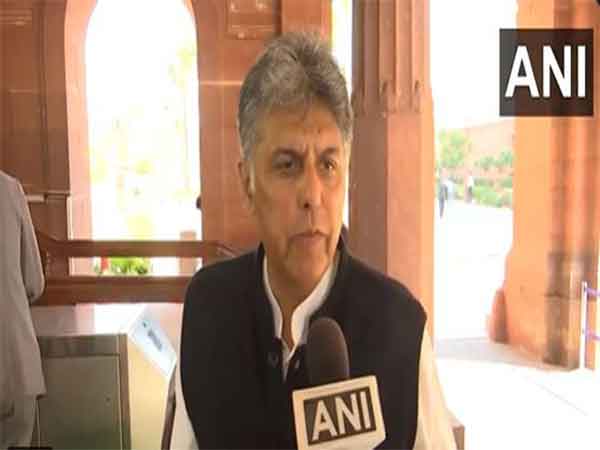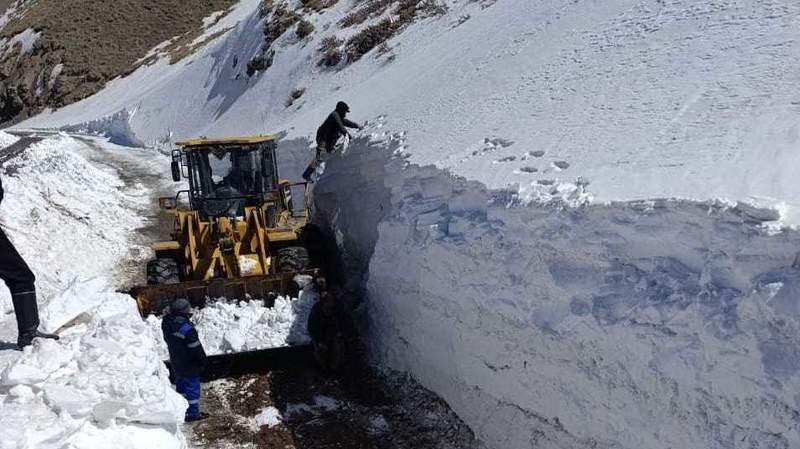
ORONOCO, Minn. — Minnesota Farmers Union's People's Town Halls have heard bipartisan outrage about federal government actions in recent weeks. Although the majority of members in the organization are Democrats, Minnesota Farmers Union President Gary Wertish said members from both major political parties have been showing up to the town halls, of which the group is hosting 10.
ADVERTISEMENT "At the meeting last week, we had a number of people when they spoke up concerned about the cuts on various programs started out by saying 'I'm a Republican, and I don't like what's happening,'" Wertish said. "Whether it's Social Security and Medicaid, that type of funding, really all across the board. In farming right now, and in agriculture, it's really very uncertain times.

" At a People's Town Hall in southeast Minnesota on March 31 — one day after President Donald Trump said he's contemplating running for a third term — many who spoke said they consider the country to be in a "constitutional crisis." One of those was Terry Gjersvik, who farms in Freeborn County. "I'm just a plain Jane corn and soybean farmer starting up a small livestock operation, but I'm telling you, growing corn and soybeans in this environment is really difficult.
What's making it so much different from the first trade war in 2018, is the prices that we're paying for our inputs are so much higher than they were in 2018," Gjersvik said. "The squeeze is unbelievable. For people that aren't in the space, it's hard to describe, because it is crazy.
I think our farm is going to make it through, but I there's going to be some some consolidation that happens here. I'm sure of it." Gjersvik, who has a degree in agricultural economics from the University of Minnesota, said the Trump administration is lying to the American public about the trade war.
"When Karoline Leavitt (White House press secretary) says that tariffs are a tax cut, that is a lie," Gjersvik said. "Tariffs right now are the foundation of American economic policy. They're laying everything on the line.
The tariffs that are being proposed on April 2 are huge and massive. The trade war and the tariffs that were used in 2018 pale in comparison to what's coming our way. And so here we are, the financial aspects of our country are based on a lie.
" Dan Lundell, who farms corn and soybeans in Cannon Falls, said he also believes the country is in a constitutional crisis. ADVERTISEMENT "I'm asking our representatives to hold town halls and not just Farmers Union," Lundell said. "I don't hear back from my representative.
It's very disappointing." Bob Walser, who farms in Goodhue County, said he works with a lot of beginning and immigrant farmers who are impacted greatly by funding for farm to school programs and more. "Some of them are Farm to School suppliers, which is one of the major lifelines for small farmers to actually be economically viable," Walser said.
"I spent a little bit of time reading Project 2025 , and if what I read there is accurate, it reflects a real shift away from supporting small community farmers towards large agriculture. I would like to hear from our representatives if they're concerned about this — the loss of family farms, loss of opportunity for small and beginning farmers, which seems built into the system right now and intensified by the actions of the federal government." Minnesota Agriculture Commissioner Thom Petersen said he was disappointed to see the decades of work gone into building up the farm to school program in the state impacted by federal cuts.
"When I started working on Farm to School maybe 15 years ago, it was a lot of fruits and vegetables. Today, we're really getting into protein. I know farms that do one cow every two weeks to their local school for hamburger, meatballs, all kinds of things like that," Petersen said.
"It was really frustrating to see that program that we've had in Minnesota and growing, and has been very successful, canceled." On the same day the cancellation of the farm to school program was announced, a video from Robert F. Kennedy Jr.
, head of the Department of Health and Human Services, came across Petersen's social media feed. "RFK Jr., standing in front of the USDA, and he's talking about 'We're going to make America healthy again ,' maybe some of you heard that, and 'We're going to have a program where we buy locally from farmers and get it into our schools.
'" Petersen said. "I was like, 'What? You just cut the program that does that in all 50 states.' So calmer heads trying to prevail, pointing that out to them, that here's a program that does that.
" ADVERTISEMENT Aleta Borrud, a retired physician and owner of farmland, spoke on the need for crop insurance reform, climate-smart funding and the potential impact of Medicaid and Medicare cuts. "In an area where he experiences exceptional drought, (the renting farmer) is doing all the right things in terms of climate smart agriculture — no-till, cover cropping, rotational grazing — but a lot of this really depends on funding for all the farmers and young farmers, who are trying to transition their farming to a more resilient type of farming," Borrud said. "My second point is, as a physician, I think is going to be devastating to all our rural areas if the Medicaid cuts go through.
This is the fifth year as well in a row of cuts to Medicare, and I think Medicare reimbursement rates are where they were 50 years ago. Frankly, our rural healthcare infrastructure just can't sustain this. We're going to lose whatever we have left in terms of community hospitals, nursing homes, clinics.
" Erin Farley, an Olmsted County resident who grew up on a farm, spoke of the concern she has for small farms and organizations that have been put under by federal funding cuts they were contracted to receive. "Some of this funding was already approved and appropriated by Congress to fund these programs for a certain amount of time, maybe not for the next five years, but for some of the time. So where is our tax money going, and who is making sure that it comes back to us? They just don't get to spend it on something else," Farley said.
"That money needs to come back to our states and our districts and our schools and our farmers so we can fund these programs." Wertish said for some of those farmers and groups, it's already too late. "For some of those who had contracts for their local markets, that funding has been cut, and if they said 'We got to wait 90 days,' if they're planting in say a hoop barn, they have to be planting their seeds, and they can't wait 90 days," Wertish said.
"In 90 days, the market is over, so it's going to be tough. We're probably going to lose some of those farmers. The longer this drags on, the more farmers we lose, and the more damage it does to our rural communities.
".











